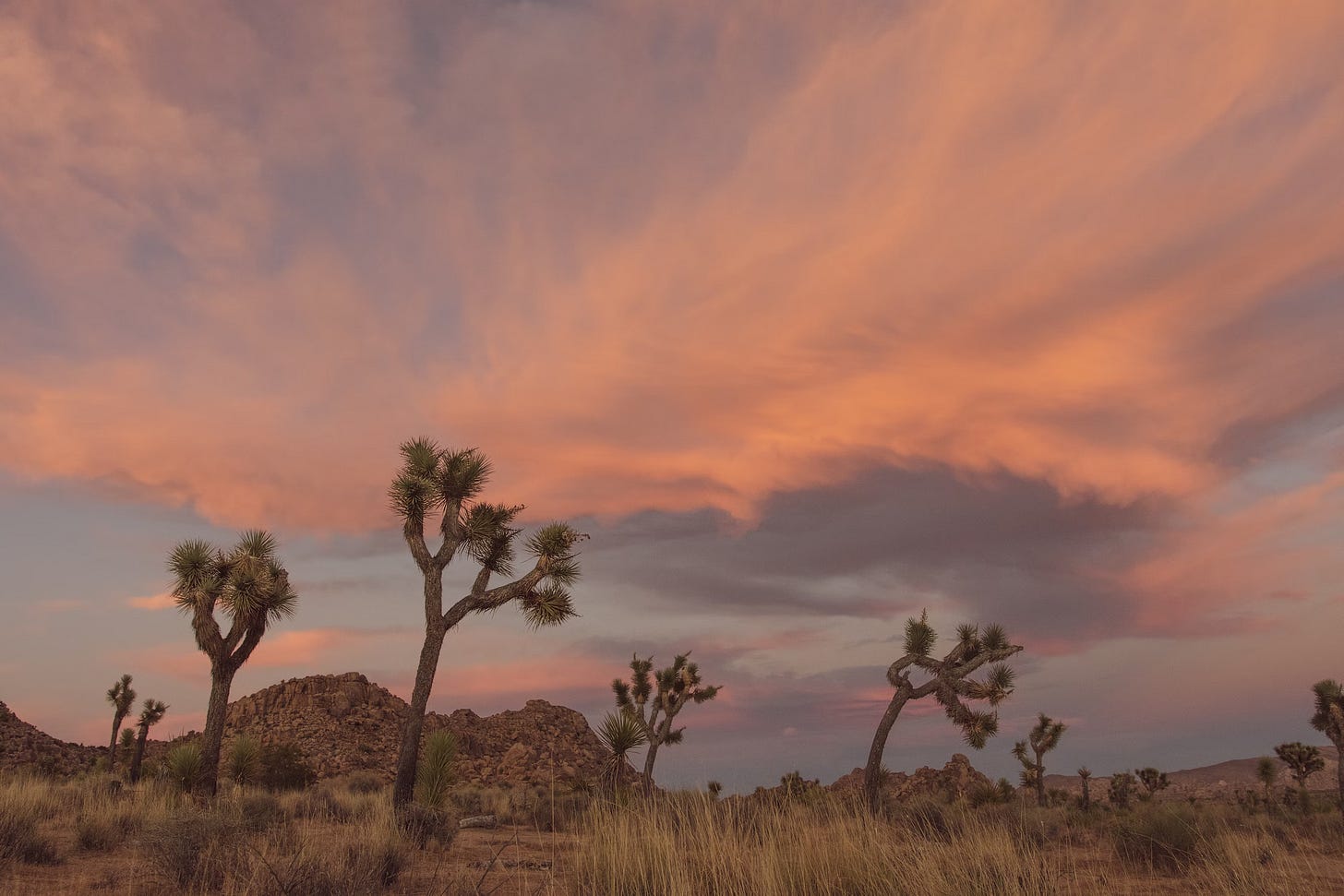Before I continue further, I should acknowledge I have not posted anything since over a week ago. The time was dedicated to writing, editing, and agonizing over a submission piece, which will most likely be shared eventually on Free to Be, or if it is accepted, on their platforms. I apologize for the disappearance I hope I was not missed too dearly. ;)
Then Jesus, being filled with the Holy Spirit, returned from the Jordan and was led by the Spirit into the wilderness, being tempted for forty days by the devil. And in those days He ate nothing, and afterward, when they had ended, He was hungry.
Luke 4:1-2
An awakening
Today, it is March 4th, 2025—the day before Ash Wednesday, or Shrove Tuesday, according to the liturgical calendar. I seriously considered whether or not I should write a piece on Lent, considering the massive amount of posts already coming out. With that said, I think everyone has their own perspective and traditions they hold to, mine being only one drop in the ocean. Additionally, as my subcaption states, I will be holding off on writing anything new until after Resurrection Sunday. You can still find me over in Notes; I will be interracting with everyone there. Regarding new and original pieces, though, this season of Lent in particular, God has gently asked me to center my life around for the next forty days, creating space for my heart to offer acts of prayers, fasting, and almsigiving in preparation for the rest of the year and more specifically, remembering Christ’s death.
Since January’s beginning, and really, stretching farther back to July of 2023, the Anglican tradition has called me to my heart in more ways than one. Previously mentioned in another article, July 2023 saw me attending Summit Conference in Lookout Mountain, GA. While I was there I encountered and got to have a meal with Josh Bales, an Episcopalian priest, songwriter, and therapist. Needless to say, I highly suggest listening to his artfully written music. Much of our conversation revolved around my questions and his answers of the Orthodox Church’s beliefs, even though he presides over an Anglican church in Florida. Somethng about his way of bearing, though, and leading worship, drew me to Anglicanism.
So, in the new year, I decided to start attending an Anglican church. I’d visited a few, ranging from high church traditionalism to more contemporary beliefs and liturgy. And this lenten season reflects my change from non-denominational to denominational.
In all transparency, before I began to write down my thoughts on the tradition of Lent and Ash Wednesday, I partook from the numerous Fr. Mike Schmitz videos1 on the topic, partially listened to a Pints With Aquinas episode, and am preparing to read Art for the Liturgical Year’s post entitled Christ in the House of his Parents, Preparing for Lent, and Eucharistic Symbolism. I am immensely appreciative of the household that I was raised in and the many years in an Evangelical non-denominational church; with the sound biblical doctrine and verse-by-verse teaching from the time I was in middle school to adulthood, Church tradition now means more to me than it probably would have if I’d been raised with it all. With that said, I’d never had the chance to experience or been exposed to a liturgical year and those age-old religious customs.
Two or three years ago, I purchased a Lent devotional called The Heart of Christ published by The Daily Grace Co. (no longer in print, but they have other wonderful Lent resources, including a new devotion). At the time I knew, vaguely, that Lent included fasting of something you are particularly fond of as well as a heart preparation for the death and resurrection of the Lord. Outside of those basic facts, I wasn’t aware of much else; neither, at the time, did I see value in knowing more.
Since then, I’ve begun to value and uphold Church tradition. Not out of a fear that somehow I’ll miss the salvation train or that Christ will bless me in ways He could not before because I wasn’t obedient or ‘good’ enough for Him. Instead, as many have concluded before me, Church traditions are, at the end of the day, graces established by the early followers of Jesus. They are meant to draw us closer to the heart of Christ, to one another in the community of God, and reveal our need for idenitity in the Lord.
The ash actually means something
Because I’m not sure of how much or what information is well-known in my generation (Gen Z, if you can’t already guess), I’ll share a little of what I’ve been learning (most of it literally earlier today) about Ash Wednesday—the beginning of the lenten season.
Unless you’ve attended a liturgical church all of your life, the ashen sign of the cross upon your forehead may seem outlandish or outdated. Maybe it seems like some sort of pagan rite or overly ritualistic.
While I was studying up on what tomorow means for all Christians, no matter whether you acknowledge it or not, ash is a sign of mourning and solemnity. It marks our deeply-felt grief for not only our sin, but as Fr. Schmitz said, our sorrow for how excellent we could be, in a world that isn’t dominated by fallen creation. The sign of the cross, drawn on our forehead in ash, signifys a grave recognition that the world isn’t right. The mentioning of ash is scattered all throughout the narratives of Scripture.
My ears had heard of you but now my eyes have seen you. Therefore I despise myself and repent in dust and ashes. (Job 42:5-6)
So I turned to the Lord God and pleaded with him in prayer and petition, in fasting, and in sackcloth and ashes. (Daniel 9:3)
When Mordecai learned of all that had been done, he tore his clothes, put on sackcloth and ashes, and went out into the city, wailing loudly and bitterly. (Esther 4:1)
When Jonah’s warning reached the king of Nineveh, he rose from his throne, took off his royal robes, covered himself with sackcloth and sat down in the dust. (Jonah 3:6)
Even though right now I can’t get into the context of these four verses drawn from the Old Testament, I recommend you go look it up if you are unfamiliar with them because they greatly contribute to one’s understanding of penitence, grief over sin, and our eventual renewal.
Fr. Schmitz also said something else that stuck with me, and that I’d like to carry with me for the next 40 days: when we think of—or for the Catholics among us, go up to receive it from the priest—this ashen cross, meditate on this thought: that you belong to Christ. He call you His. That is enough. Enough to sustain you through seasons of fasting in the wilderness, as I’ll mention a little more about in a minute, and enough to cleanse you from all unrighteousness.
Therefore, because the ash isn’t simply sackclock and ashes, like in more ancient times, but instead forms the same of a cross, it is meant to hold two meanings for us: 1) every single believer, in all sects of Christendom, ought to go out of their way to be in a state of constant humilty, repentance, and grief over their sin, the consquences of sin, and the state of our fallen world; 2) with our acknowledgment of how desparately our spiritual situation is, comes the saving grace of Christ’s blood, shed for the forgiveness of many, and our adoption into the Gospel Kingdom.
Before any of my friends throw up there arms and say, He’s already forgiven us! It’s one and done at the cross! Also, who wants to be perpetually sad?, I’ll explain myself briefly.
Grave attitudes toward our sin and a humble heart do not mean we have to go about with long faces. In fact, Jesus said not to do so (Matt. 6:16). What I intend for myself in my sinful state, is not to carry the guilt—often following our committing a sin—which the enemy would have us bear as a burden. Rather, the heart has often a proclivity to pride. It takes watching a child for five seconds for any one of us to know this. I am aware of this, any person in relationship with another person is aware of this. The purpose of constant repentance, particularly during the season of Lent, is to reorient our egocentric lives back around the cross, and what that event means to anyone who has been saved. What does the cross represent? One perfect and sinless life, spent for the sins of every other human being ever made.
If we had no sin, there would be no need for a sinless sacrifice. Therefore, to not openly acknowledge, repent, and continue in a state of humility is to diminish Christ’s death and spit upon the cross. 1 John 1:8-10 reminds us of that truth, “If we say that we have no sin, we deceive ourselves, and truth is not in us. If we confess our sins, He is faithful and just to forgive us our sins and to cleanse us from all unrighteousness. If we say that we have not sinned, we make Him a liar, and His word is not in us.”
Any Christian you came across on the street would doubtless admit to their sin. Sin, sin, sin—either a trigger word or else meaningless. To admit that sure we’ve made mistakes in the past is one thing, but then to willingly proclaim to God, ourselves, and others that we are broken beyond repair, that we are destined for eternal separation to live perpetually in selfcenteredness…well, those are two different matters.
Lent provides a 40 day period to revaluate our hearts and minds in preparation of partaking of the body and blood of our Savior on Easter morning.
40 isn’t just a number
For those of us who have grown up in church, numbers in the Bible are significantly. From the 7 day completion, to 1 symbolizing supremecy, 40 also meant something to those ancient Hebrew scholars, and they still hold their meaning for us today. 40 represented a time of severe testing or trial, or even, preparation. The significance of 40 for the lenten season is particular, modeled after Jesus’ wilderness wandering with His Father.
I think we have all experienced seasons of preparation, trial, testing, and waiting. More often than not, all five of these things happen together, to our flesh’s great disappointment.
One of my dearly beloved passages has included both accounts of Jesus in the desert. I am looking forward to studying the sayings and teachings of the Desert Fathers (it’s looking like that’ll happen in the next ten years, considering my TBR). Personally, I have experienced many many seasons of waiting and painful temptation. The enemy prowls about like a lion, willing for some unwary prey to fall into his path. Unfortunately for me, I have too often been one he attempts to feast on, and I have more than once given into his whims.
Yet, there is a sweetness in Jesus’ separation and holy quiet with the Father, out there, in the silence of the mighty desert landscape. I once visited Joshua Tree national park and fell deeply in love. This is what I imagine when I think of this biblical story.
I see Jesus walking amongst the thistly sparse residents and climbing to the top of furrowed rock formations to look out on the world He had created with the breath of His mouth. I imagine Him walking up and down in the shade of aforementioned jagged stones, repeating the Shema, perhaps, or speaking out loud to God. Maybe he wept because of the hardness of the hearts He had come to save or the difficulty of the task ahead. We know He was starving, thirsty, and thus probably had very little rest. Rest, which most likely did come eventually, was inadequate due to meager sustenance.
Without doubt, He was hungry and weary. Anyone would be after 40 days in the baking sun. But He finds Himself not only a stranger to basic comforts like food and water, but now His companion seems to be the Devil himself, actually attempting to pull one over God himself. It makes me laugh.
But what did Jesus experience out there, in the wilderness? What revelations came to Him (can revelations come to God)? How did He feel, being tempted by an angel He had created? What did God His Father say to Him? What did Father and Son’s conversation consist of? Did His mother worry about where He was?
All questions I am not privy to the answers of.
Yet I know the impact of a wilderness wandering. The Israelites were forced to surrender to their desert dwelling because of their fear and lack of faith in the miraculous God. Only their pilgrimage in the desert was primarily discipline, not blessing, and it lasted 40 years.
40 days of Lent is, for me, a blessing and a cautionary symbol. It is a blessing because Lent prepares the heart for what more is to come after it has gone through a purification process and been given an atitude of renewed humility, which we always ought to carry. In that way, it blesses, although the blessing may pain me in the interim. A warning for the times when fear and pride tend to turn me away from the heart of Jesus and put the focus back on my egocentric worldview. How easily we are enraptured by selfish thought, pursuit, and lifestyle—at least, I know I am.
Sometimes, we must ‘take a wandering’ into the deepest wilds of our own hearts, which can be the most painful and difficult places to travel to.
My pastor shared last Sunday, his views on the importance of Lent. Lent, he said, was a time for Jesus to cut to the heart of the matter, for us to be in a place undistracted from the call of the world, and refocus our whole being on Him, where He could replace our dead hearts with a pulsing one. It would be painful, he grimaced, like a surgeon with a scalpel, knowing the weeks, the months it would take for his patient to heal, for his body to work properly again. But it must be done. It was high stakes, like or death.
In 2025, Lent means many new things to me. Most of all, it encapsulates how far I have strayed from the road less traveled, down the road to Vanity Fair, as John Eldredge talks about in his book The Sacred Romance.
During this time of reflection and trial through fasting, I pray the each of us—myself included—would allow Jesus to uncover the wild environs of our hearts and invite Him to master us, fully and completely, with nothing to be done except surrender to His passionate love, to His call which beckons us further up and further in.
For those of you also celebrating Lent, please comment below what the next 40 days will look like for you, how you will interract with Jesus, and what your views are on the lenten season.









I have always loved the tradition of the ashes :) even though I don’t practice anymore, I’ve always found something really beautiful in it
I am slowly dipping my toes into the waters of Lent, after being raised in a very non-denominational Evangelical home. This was a helpful read for me!